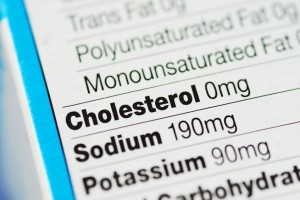Know your numbers
 According to the American Heart Association, heart disease is the number one cause of death among Americans. Heart disease consists of any disease that affects the heart. While genetic factors play a role, there are steps that can be taken to reduce your risk. Knowing your risk for heart disease is as simple as knowing a few numbers. Here are the types of measurements doctors need to know when assessing your risk for heart disease.
According to the American Heart Association, heart disease is the number one cause of death among Americans. Heart disease consists of any disease that affects the heart. While genetic factors play a role, there are steps that can be taken to reduce your risk. Knowing your risk for heart disease is as simple as knowing a few numbers. Here are the types of measurements doctors need to know when assessing your risk for heart disease.
Blood Pressure
Your blood pressure is the force that’s required to pump blood through your body. When you have your blood pressure measured, your care provider is attempting to determine the pressure your blood is exerting on your arteries. High blood pressure can lead to coronary artery disease or even heart failure. Normal blood pressure is typically considered 120/80.
Cholesterol
Cholesterol is a measure of a substance found in blood. There are two types of cholesterol that doctors measure: LDL (low-density lipoproteins) also known as “bad cholesterol” and HDL (high-density lipoproteins) known as “good cholesterol.” A high amount of LDL cholesterol can lead to various cardiovascular diseases and can result in a heart attack. As a general rule, total cholesterol should be less than 200.
Blood sugar
High blood sugar can indicate prediabetes and/or diabetes. According to the American Heart Association, adults with diabetes are two to four times more likely to die from heart disease than adults without diabetes. While blood sugar numbers vary, normal levels should generally be under 100 if you haven’t eaten for at least eight hours. If you’ve eaten recently, your blood sugar will be a little higher but should be under 140.
The best way to keep your numbers where they should be is to adopt a healthy lifestyle: watch what you eat, exercise regularly, get enough sleep and manage your stress. If you have questions or concerns about your numbers, always ask your doctor.







